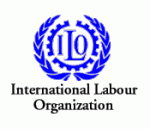Considering that NGOs target various geographic scopes, they can be categories accordingly. Below is a breakdown of their categories:
Community Group: Family Associations, Village Cultural Clubs.
Local NGO (LNGO): Aie Serve, Sesobel, Greenline, Ayadina, Beeatoona, Ibtissama.
Regional NGO (RNGO): MENA Entrepreneurs Summit, Anna Lindh Foundation(EuroMed), African Aid Network, European Youth Federation.
National NGO (NNGO): MentorArabia, Injaz, Safar Fund, USA Red Cross.
International NGO (INGO): PMI, World Vision, Red Cross, Rotary, Greenpeace, Save the Children, Oxfam.
It’s important to clarify here that the following International Organizations (IOs) are NOT considered NGOs: UNDP, ESCWA, UNESCO, ILO, OPEC, FAO, Arab League..etc.
Let me know how that sounds.






